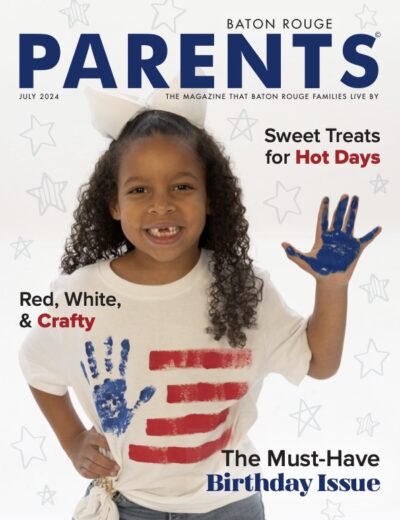
When Baby Talk Stops Being Cute
“Well hewwoh derrr, where is mama’s cutesie wootsie widdle baby guuurrl!?”
Whether it’s your own baby or someone else’s, chances are your conversations with little ones feel less than sophisticated. For many, “baby talk” is a very natural and almost subconscious approach to talking to infants. But when does “baby talk” go from a fun and playful way of talking to your baby to a potential threat to his or her language development? According to the American Academy of Pediatrics, 80 percent of a child’s brain develops within these first three years. Talking to your child is one of the ways to encourage development, so parents should be educated on productive methods of communication.
Parent-EASE?
Infant-directed speech, also known as “parentese,” is what speech and language therapists consider a constructive form of baby talk. Rather than using silly words and sounds, parentese uses correct words and grammar. There are three components that separate parentese from normal adult speech: higher pitch to grab the child’s attention, slower tempo to give the child time to understand, and excited intonation to keep them engaged.
A recent study released by the University of Washington determined that children of parents who use parentese regularly are likely to develop a significantly larger vocabulary by the age of 18 months than those whose parents do not adopt this practice. Patricia Kuhl, the co-director of the Institute for Learning & Brain Sciences at the University of Washington calls parentese a “social catalyst for language” and encourages parents to use this in homes when speaking to their children. Not only is it proven to be beneficial, but babies prefer it. Kuhl conducted an experiment where a seven month old is exposed to both regular adult speech on one side and parentese on the other. The baby consistently chooses to turn his head in the direction of the adult speaking in parentese.
Model Behavior
A child mispronouncing words or making up words all together can be considered another form of baby talk. Dr. Vicky Roy, a Speech and Language Therapist with a doctorate in Language & Literacy and co-owner of Dynamic Therapy Specialists, says that it is important to differentiate between the two. According to Dr. Roy, true baby talk creates constraints while parentese facilitates language. “Motherese or parentese is regulated and soothing to a child, which facilitates engagement and connection. It is this engagement and connection that ultimately facilitates language development.” Because of this connection, she doesn’t recommend that parents stop using this method of communication.
On the other hand, while it is not imperative that you “fix” the baby talk on your child’s behalf right away, Dr. Roy encourages parents to model the correct pronunciation of words from day one. For example, your daughter asks for “lemolade.” Rather than correcting her and saying, “No, it’s called lemonade,” you could say, “I would love to fix you some lemonade.”
The American Speech-Language-Hearing Association website guides you in what sounds your child should be making during the early stages of language development, so you’ll know when to intervene. If you notice any red flags in the language department based on these letter and sound milestones, Dr. Roy suggests working with your child for approximately 10-12 weeks. If no improvement, seeking professional help in the form of speech therapy can be very beneficial to the child.
In some cases, baby talk can spur the creation of a new word all together. When Lacee Perry, a PreK teacher and mom of three was pregnant with her first child, Fields, the plan was for her kids to call her mom, “Sugar.” But Fields had a different plan. “Instead of Sugar, he would call her Gugie, and it just stuck! Now, all three kids call her ‘Gugie’ and we couldn’t imagine her being called anything else,” Perry says. Dr. Roy says that this is one of few instances when correction isn’t necessary.
While talking to your baby is one way to encourage development, there are other things parents can do. Playing peek-a-boo, singing songs, or reading bedtime stories might seem insignificant but can go a long way towards their development.
Shannon Hannaman, a board-certified kindergarten instructor at the University Laboratory School says that hearing words pronounced correctly while looking at age-appropriate books and understanding that the picture matches a word is critical for their development and also an important pre-reading skill. “The most incredible thing I ever saw was a two year old in a daycare setting turning the pages of a book and saying the words on the page. They had memorized the words of a book they loved that the teacher had read to them for fun,” says Hannaman.
One of the best memories parents will have is the milestone of him saying his first word. It sometimes even turns into whether Mama or Dada will come first. After months of coos and babbles, first words might emerge. By the time they turn two, babies can have a vocabulary of up to 50 words. By age three, they can string words together to form sentences. So, be sure to use proper communication with your growing child to ensure he is adequately prepared for his first word, and every other word that follows. ■





